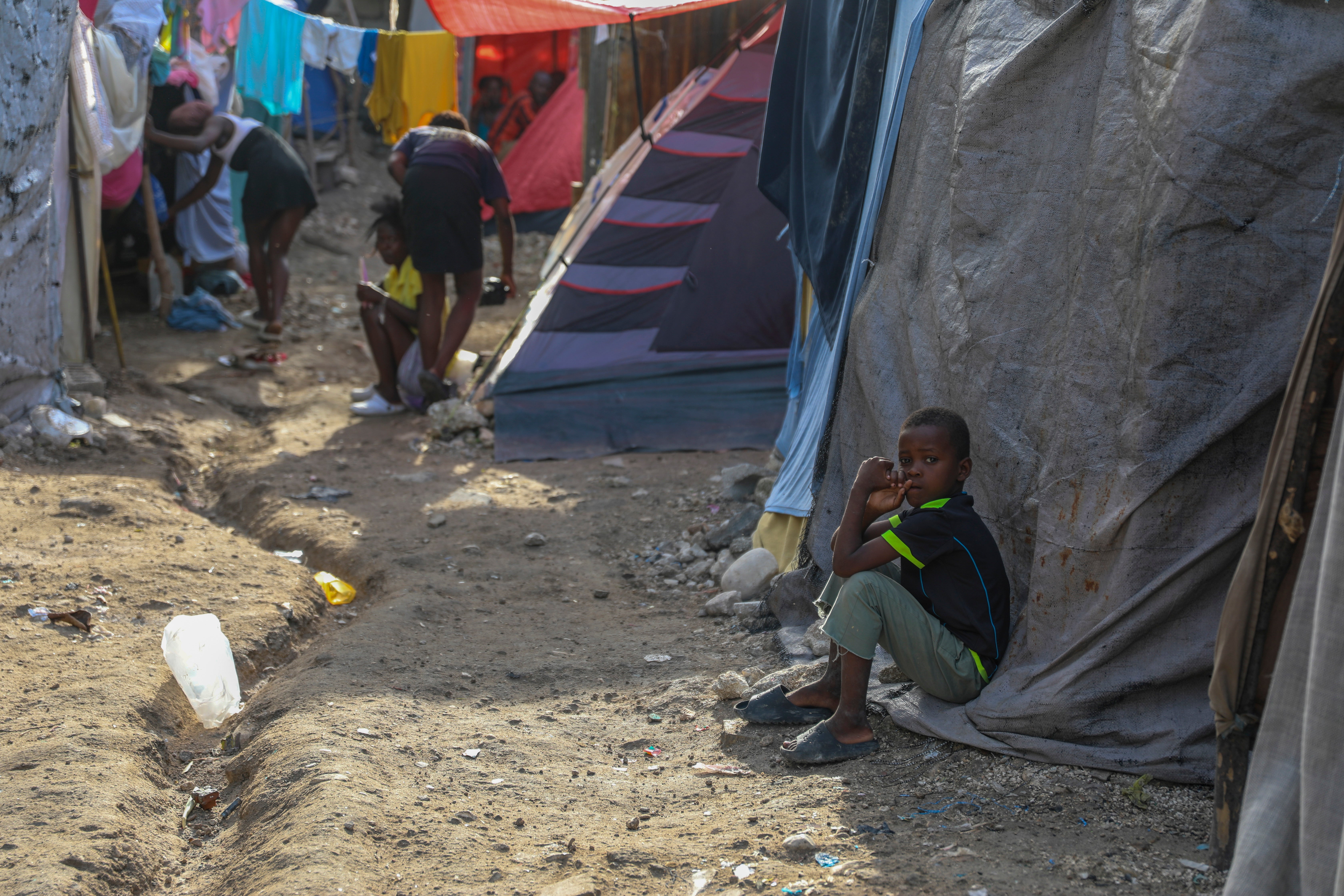Haitian activists demand halt to deportations as gang violence and poverty soar
Haitian activists are demanding that other countries temporarily stop deportations to their country given a surge in gang violence and deepening poverty

Your support helps us to tell the story
From reproductive rights to climate change to Big Tech, The Independent is on the ground when the story is developing. Whether it's investigating the financials of Elon Musk's pro-Trump PAC or producing our latest documentary, 'The A Word', which shines a light on the American women fighting for reproductive rights, we know how important it is to parse out the facts from the messaging.
At such a critical moment in US history, we need reporters on the ground. Your donation allows us to keep sending journalists to speak to both sides of the story.
The Independent is trusted by Americans across the entire political spectrum. And unlike many other quality news outlets, we choose not to lock Americans out of our reporting and analysis with paywalls. We believe quality journalism should be available to everyone, paid for by those who can afford it.
Your support makes all the difference.Haitian activists on Thursday demanded that other countries temporarily stop deportations to their country due to a surge in gang violence and deepening poverty.
Tens of thousands of people have been deported to Haiti in the past month, mostly from the Dominican Republic, whose president recently pledged to deport some 10,000 migrants a week.
The Caribbean country, which shares the island of Hispaniola with Haiti, has deported nearly 61,000 migrants to Haiti from Oct. 2 to Nov. 5, according to the latest government figures.
In October, the U.S. deported 258 Haitians, while Turks & Caicos, Jamaica and the Bahamas deported a combined total of 231, according to Sam Guillaume, a spokesperson for Haiti’s Support Group for Returnees and Refugees.
He noted that many of those deported to Haiti remain homeless.
“A lot of them can’t make it back home because their neighborhood is controlled by gangs,” he said.
As a result, some deportees are temporarily living along Haiti’s border with the Dominican Republic in hopes of crossing again.
Gangs now control 85% of Haiti’s capital, Port-au-Prince, and gunmen have been relentless in attacking once peaceful communities.
The deportees now join the more than 700,000 people left homeless by gang violence in recent years.
Among that group are more than 12,000 who fled neighborhoods in Port-au-Prince following attacks last month, according to the U.N.’s International Organization for Migration.
Those held for deportation in the Dominican Republic are being forced into crowded jails with no water, no food and no beds, and when they defend their rights, they are sometimes tear-gassed, Guillaume said.
“People are being treated like criminals,” he said.
He added that some organizations helping Haitians in the Dominican Republic also are being attacked.
A spokesperson for Dominican President Luis Abinader could not be immediately reached for comment.
Guillaume said Dominicans who are smuggling Haitians into their country are sometimes kidnapping them and demanding up to $300 for their release.
Katia Bonte, coordinator for Haiti’s Support Group for Returnees and Refugees, said the migrants they’re assisting urgently need food, water, medical aid, hygienic kits and other essential supplies.
The request to temporarily halt deportations comes as U.S. president-elect Donald Trump promises mass deportations once he’s sworn in, although many questions remain about how his administration would do so.
The Haitian Women for Haitian Refugees, a New York-based group, said Thursday that refugees, migrants and others “will face escalating challenges” in the wake of the U.S. presidential election.
___
Associated Press reporter Dánica Coto in San Juan, Puerto Rico contributed.